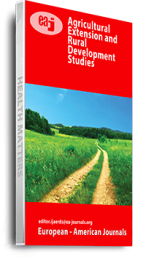The agricultural sector in Uganda is still underdeveloped partly due to the low competence of agricultural professionals. Universities adopted practical training approaches including field attachment, to train and supply professionals who possess leadership, entrepreneurship, communication, facilitation, negotiation, teamwork and organizational planning competences in addition to their formal knowledge in areas of specialization. However, the extent to which graduates acquire these competences through field attachment remains unclear given continued reports of limited work-related competences among agricultural graduates. This study assessed the learning process, motivations as well as constraints to competence acquisition through field attachment using the experiences of undergraduate students of the School of Agricultural Sciences (SAS), Makerere University – Kampala. Data were collected through document review of 437 students’ field attachment reports and individual interviews with 65 students. Data were analyzed using SPSS 18 and thematic content analysis. The findings showed that trough field attachment, students participated in agricultural field activities and acquired both technical and work related competences. However, most placement organizations had a limited span of value chain activities; the attachment duration was deemed very short; the timing was inappropriate and the quality of supervision was low. These challenges limited skills acquisition to basic crop and animal husbandry and less of the value addition, entrepreneurship and marketing competences. To enhance the quality of field attachment, duration of the programme ought to be reviewed to at least a full semester or a year. Strengthening collaboration with other stakeholders could be helpful to improve programme financing and supervision. It is critical to ensure that the university result into graduates with the right knowledge, attitudes and skills to make meaningful contribution to agricultural development.
Keywords: Field Attachment, Graduate Competences, Higher Education, Practical Training, Programme Design, Stakeholder Engagement, Undergraduate Students

